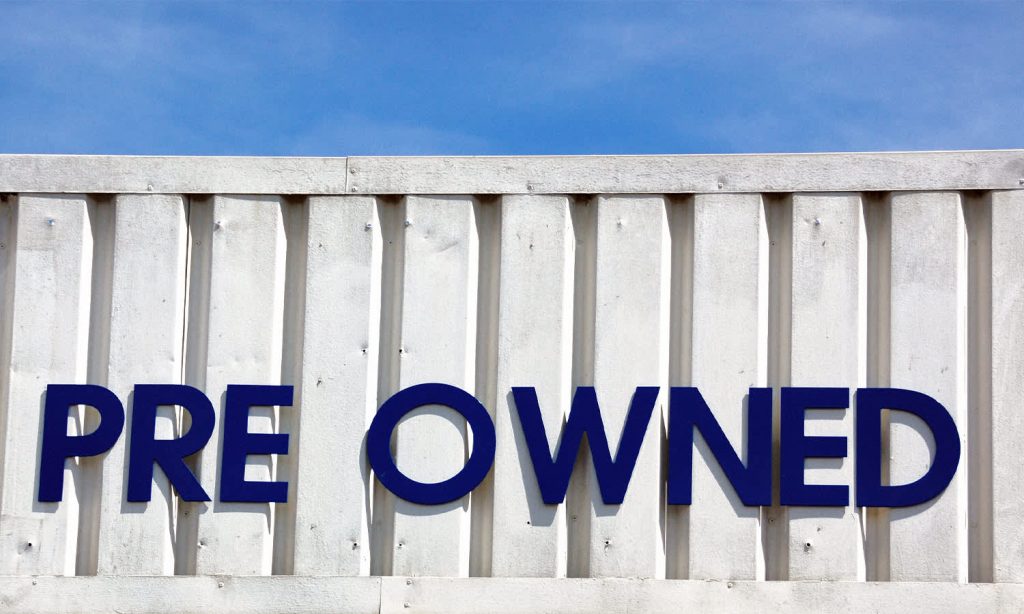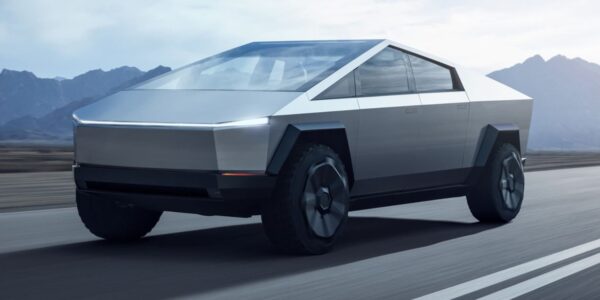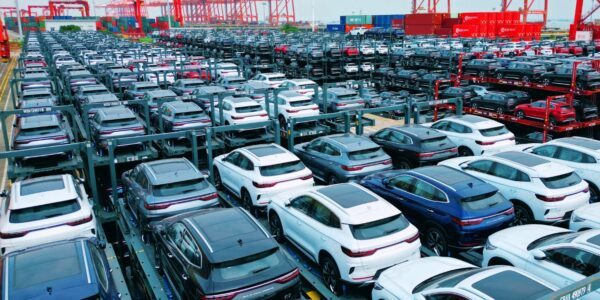We’ve covered a number of aspects of buying electric vehicles, AKA EVs, AKA the cars of the future, but the initial cost seems to be the biggest factor in getting your hands on one.
With a baseline entry figure of around $44,000 for the cheapest models on the market currently, they’re not exactly the kind of vehicle that everyone can head out and pick up right away.
Buying a second-hand EV is an option though and the prices decrease dramatically if you do. However, there are a number of things to consider if you’re looking to go this route.
Before you dive right in and buy one, you’ll also need to factor in the cost of set-up. While EVs can be charged straight from your mains power plug, this approach is generally too slow to charge the thing for most people. Instead, the vast majority of EV owners opt for a fast charger, the installation of which often comes free with the vehicle. No such luck however with second-hand EVs, so you’ll need to factor in an extra $1000 – $3000 for the charger.
With that said, here’s what you need to know about buying a second-hand EV.
Where to Find Second-Hand EVs
Your first challenge is going to be tracking down a second-hand EV. Fully electric cars have only really been around on the Australian market for a little over a decade. As such, there aren’t a huge amount of second-hand options available as people hang onto their first purchase.
That’s obviously changing, however, and the supply will continue to grow as people upgrade their EVs, but, at the minute, trying to find a good option can be tough.
There are of course EV categories on most of the major car-resale platforms. CarSales currently have 727 EVs for sale across Australia, with the cheapest one, a 2008 Blade Electron, coming in at $6500.
Autotrader has 180 EVs for sale at the time of writing, with the cheapest, a 2012 Nissan Leaf going for $8,800.
Both of these examples however are very much outliers at the low end of the scale, with most cheaper second-hand EVs selling for $20,000 and up. That’s still less than half of what you would pay for a brand new one.
Outside of these platforms, you could also try Good Car, a start-up founded by three environmental scientists to distribute second-hand EVs in Australia and support the transition to a decarbonised economy more broadly.
They import “low kilometre pre-owned and new electric vehicles” from the UK and Japan for the Australian market and have a constantly updating selection of stock starting from around $15,000.
Otherwise, auction houses like Pickles and Manheim, which specialise in selling-on used government stock as well as commercial vehicles sometimes have EVs come up in their rotation so it’s worth checking these regularly.
Lastly, Tesla also claims to sell used stock through their website but very few, if any, have ever come up. Still, it might be worth keeping an eye on or getting in touch to see if you can grab a bargain on the most popular make of EV on the market.
Are Second-Hand EVs Any Good?
Yes and no. Like any used car, it depends on the vehicle itself. Still, there’s nothing inherently different with an EV, as opposed to a diesel or petrol car, that would make buying second-hand any riskier or less attractive.
The main thing to look at is the age of the vehicle. Most EVs from the early generation (pre-2015) have pretty limited batteries and the technology used in them has come a long way in the past decade. That being said, those who would have bought early are likely to be highly conscious owners who took good care of their vehicles.
In addition, 2012, the year the world’s second most popular electric car, the Nissan Leaf was released, was not that long ago in terms of car sales so deterioration is not likely to be a huge issue with this era of cars.
The Battery Is the Most Important Factor
Buying an EV is like buying any used car. You should make sure to check all the usual things, like milage, how well the car has been cared for, and whether there is documented service history of the vehicle.
Always take the car to a mechanic to get it looked over before buying as they’ll be able to give you a good indication of how likely you are to run into problems with it. Anyone selling a car second-hand should be comfortable with you doing this and if they’re not, it’s likely because something is wrong with it.
When buying an EV, the battery is the most important thing you need to check on. Batteries in EVs are much like phone batteries, only a lot bigger. If it’s been fast-charged at service stations for years, been working in hot conditions, and has been driven substantially, it could need replacing, especially if the vehicle is more than eight years old. Replacement batteries aren’t cheap and could add up to $10,000 onto the cost of the vehicle.
Most electric cars will have battery diagnostics reports within their onboard computers which you can see. Some older vehicles may require you to take them to a mechanic to get this report. As long as the battery health and capacity is above 80%, you should be fine.
EVs often come with a warranty on the battery which you should still be able to claim if its in date and faulty. Nissan offers an eight-year warranty on theirs, while Tesla offers four-year coverage. Checking the warranty and its viability is also a good idea when purchasing.
Outside of the battery, it’s also a good idea to check the power plug of the vehicle to make sure it fits with highway chargers. Most in Australia will, especially if you’re going with a more popular model, but it’s a question worth asking.
Unlike petrol or diesel vehicles, EVs won’t need much mechanical upkeep so going for a used one doesn’t come with the same risks that other fuel types do. That said, it’s best to do your research and look into the model you’re after and be as diligent as possible when speaking to the seller.
Read more stories from The Latch and subscribe to our email newsletter.







